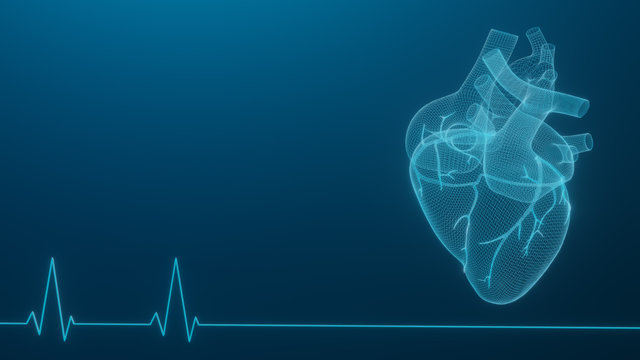Comprehending the Relevance of Cardiology in Modern Health Care Providers
Cardiology plays a crucial duty in modern-day health care, especially as heart problem proceeds to be the leading cause of death worldwide. Advancements in diagnostics and treatment have actually changed person treatment, enabling earlier treatments and boosted outcomes. In addition, the shift in the direction of preventive cardiology encourages individuals to manage their wellness proactively. As modern technology continues to advance, the assimilation of cutting-edge services may better redefine cardiology's influence on public health and wellness, triggering a more detailed evaluation of emerging patterns and their effects.
The Occurrence of Heart Disease and Its Influence on Public Wellness
Although heart condition remains the leading reason of fatality worldwide, its influence expands far past individual clients to affect public health and wellness systems and economic climates. The high prevalence of cardiovascular disease puts a substantial stress on medical care sources, requiring enhanced funding for rehabilitation, therapy, and prevention programs. Public health initiatives must address risk elements such as obesity, smoking, and sedentary way of lives, which contribute substantially to the climbing incidence of heart conditions.Moreover, the economic concern connected with heart problem is tremendous, incorporating not just straight medical costs yet likewise indirect expenditures connected to lost efficiency and early mortality. Communities deal with difficulties in managing these expenses, commonly bring about differences in healthcare access and results. As the population ages and lifestyle-related dangers continue to escalate, the urgency for reliable cardiology interventions ends up being critical. Addressing heart illness is not just a matter of private health however additionally a vital public health concern.
Advancements in Heart Diagnostics and Imaging Techniques
Recent developments in heart diagnostics and imaging techniques have actually revolutionized the area of cardiology, improving the ability to keep an eye on and detect heart diseases. Techniques such as heart MRI, CT angiography, and echocardiography have actually come to be significantly innovative, providing comprehensive pictures of heart structures and functions. These modalities enable the very early recognition of conditions like coronary artery illness, cardiac arrest, and valvular disorders.Moreover, advancements in non-invasive diagnostics, such as wearable technology and remote tracking gadgets, have actually encouraged clients and doctor. These tools help with real-time monitoring of heart rhythms and various other necessary indications, resulting in prompt interventions. Additionally, expert system is being integrated into imaging evaluation, boosting accuracy and performance in diagnosis.
Developments in Treatment Alternatives for Heart Issues
Current improvements in cardiology have actually led to substantial advancements in therapy options for heart problems. These include innovative medical techniques that improve procedural end results and arising medications that offer brand-new avenues for treatment. As the field evolves, these advancements play an important function in enhancing patient care and results.
Advanced Surgical Techniques
Developments in medical strategies have changed the landscape of cardiology, using brand-new expect individuals with heart conditions. Minimally intrusive procedures, such as catheter-based treatments, have actually significantly lowered recovery times and healthcare facility stays. Methods like robotic-assisted surgical treatment boost accuracy, permitting doctors to browse complicated anatomical frameworks with higher accuracy. Furthermore, improvements in imaging innovation help with real-time visualization during procedures, enhancing outcomes. Transcatheter aortic valve replacement (TAVR) exemplifies a development in treating aortic constriction, allowing shutoff replacement without open-heart surgery. Additionally, hybrid methods that integrate catheter-based and surgical techniques give tailored options for different heart concerns. These sophisticated medical strategies not just enhance patient security but also increase therapy options, emphasizing the critical function of technology in modern cardiology methods.
Arising Treatments and medicines
As the landscape of cardiology remains to advance, arising therapies and drugs play a critical duty in improving therapy choices for heart disease. Advancements such as unique anticoagulants and advanced lipid-lowering representatives have transformed the management of heart diseases, significantly lowering patient morbidity and mortality. In addition, the growth of gene treatments and regenerative medication offers appealing avenues for dealing with problems formerly deemed irreparable. Medical tests are continuously disclosing the efficacy of these treatments, pushing the borders of conventional treatments. Additionally, the integration of digital wellness modern technologies facilitates customized medicine, enabling customized therapy plans based on genetic and way of living factors. Collectively, these innovations highlight the vibrant nature of cardiology, boosting patient results and redefining requirements of treatment in contemporary health care.
The Role of Preventive Cardiology in Person Care
Preventive cardiology plays an important duty in individual treatment by focusing on the recognition of threat factors that add to cardiovascular disease. Through way of life alteration strategies and very early discovery strategies, doctor can efficiently reduce the occurrence of cardiovascular occasions - Cardiology. This aggressive strategy not just improves person end results but additionally advertises lasting health
Risk Aspect Identification
While heart diseases stay a leading root cause of morbidity and death worldwide, efficient threat factor identification functions as a foundation of preventative cardiology. Identifying danger variables such as hypertension, diabetic issues, family members, and hyperlipidemia background is important for very early intervention. Health care specialists use various screening techniques to assess these elements, permitting for tailored preventative steps. Furthermore, understanding an individual's lifestyle selections, such as cigarette smoking and physical lack of exercise, even more notifies danger assessments. This detailed evaluation allows clinicians to create customized care strategies focused on mitigating dangers. By prioritizing danger aspect identification, healthcare systems can boost client results and lower the overall problem of heart diseases, eventually adding to improved public health and wellness techniques and source allocation.
Lifestyle Modification Strategies
A wide variety of researches highlights the essential duty of lifestyle alteration strategies in lowering cardio condition risk. These methods encompass nutritional modifications, boosted exercise, cigarette smoking cessation, and weight management. By adopting a heart-healthy diet regimen you can try this out abundant in fruits, veggies, whole grains, and lean proteins, individuals can decrease cholesterol degrees and high blood pressure. Regular physical task enhances the heart and enhances overall cardiovascular health and wellness. In addition, stopping smoking significantly reduces the threat of cardiovascular disease and boosts recovery rates for those with present conditions. Weight management additionally adds to cardiovascular wellness by reducing various other threat factors such as diabetes and high blood pressure. Applying these lifestyle changes not only promotes individual wellness however additionally functions as a keystone of preventive cardiology in patient treatment.
Very Early Discovery Strategies
Lifestyle alterations greatly contribute to reducing heart disease threats, yet they are most reliable when coupled with very early discovery techniques. Preventive cardiology emphasizes the importance of recognizing prospective heart concerns before they rise into severe problems. Techniques such as blood pressure tracking, cholesterol screening, and advanced imaging modern technologies like echocardiograms play critical duties in reviewing cardio health. Biomarkers and hereditary screening likewise enhance the precision of very early detection, enabling customized preventive methods. Routine cardiac danger examinations equip doctor to step in proactively, possibly protecting against cardiovascular disease and strokes (Cardiology). By incorporating these early detection approaches right into routine treatment, people can benefit from timely way of living interventions and targeted therapies, ultimately boosting and improving results lifestyle
Integrating Modern Technology Into Cardiology Practices
As developments in modern technology remain to improve numerous areas, the combination of cutting-edge devices and systems right into cardiology methods has actually become necessary for improving person care and results. Telemedicine systems allow cardiologists to monitor patients remotely, improving access to care while lowering the problem on health care facilities. Wearable devices, such as smartwatches, enable continuous heart price tracking, informing both clients and doctors to potential problems in real-time. Furthermore, synthetic intelligence (AI) is being used to evaluate large quantities of cardiac data, aiding in very early diagnosis and customized therapy plans. Advanced imaging strategies, including 3D echocardiography, boost visualization of heart structures, causing much more precise interventions. Digital wellness documents (EHRs) streamline person info administration, making certain that cardiologists have instant accessibility to critical data. Together, these technical developments are transforming cardiology, promoting aggressive management and boosted health and wellness end results for clients with cardio conditions.
The Significance of Person Education And Learning and Involvement
Person education and involvement play an essential function in the administration of cardiovascular health. By furnishing patients with expertise regarding their conditions, therapy alternatives, and lifestyle changes, doctor encourage individuals to take an active duty in their care. This aggressive technique can bring about enhanced adherence to prescribed medicines, dietary modifications, and exercise regimens, ultimately decreasing the threat of complications.Engagement additionally check my blog promotes a solid patient-provider partnership, motivating open communication and trust fund. When clients feel educated and entailed, they are more probable to voice problems and ask questions, which can bring about far better scientific results. In addition, educational resources, such as workshops or electronic systems, can boost understanding and advertise self-management strategies. Generally, focusing on client education and learning and engagement is crucial for enhancing cardio wellness, boosting top quality of life, and reducing healthcare expenses related to heart diseases.
Future Trends in Cardiology and Their Potential Impact

Frequently Asked Concerns
What Way Of Life Adjustments Can Lower Heart Problem Danger?
The existing inquiry addresses way of life modifications that can greatly minimize heart problem risk. Cardiology Jupiter. Adopting a well balanced diet plan, participating in normal exercise, maintaining a healthy weight, managing tension, and preventing tobacco can notably improve cardio health and wellness
How Can I Acknowledge Very Early Indications of Heart Issues?
Identifying very early signs of heart problems involves monitoring symptoms such as breast pain, shortness of breath, exhaustion, and irregular heartbeat. Timely awareness of these indications can trigger essential medical assessment and intervention for far better results.
What Are the Distinctions In Between Cardiologists and Heart Surgeons?
The differences in between cardiologists and cardiac specialists lie in their roles; cardiologists mainly take care of and identify heart problems via non-invasive techniques, while cardiac surgeons execute operations to deal with structural heart problems. Each plays an essential, distinct role.

Exactly how Commonly Should I Obtain My Heart Health Checked?
The frequency of heart medical examination differs based upon individual danger elements. Generally, grownups should undertake examinations each to two years, while those with present problems may need more constant assessments as advised by healthcare specialists.
What Function Does Genes Play in Cardiovascular Disease Risk?
Genes considerably influences heart condition danger, with familial patterns suggesting acquired problems. Particular genetics can predispose individuals to high blood pressure, cholesterol concerns, and other cardio troubles, highlighting the relevance of hereditary testing in reviewing heart health and wellness. Heart illness remains the leading reason of fatality worldwide, its impact expands much past private clients to affect public health and wellness systems and economic situations. Public health and wellness initiatives must address danger elements such as weight problems, smoking, and less active lifestyles, which contribute substantially to the rising incidence of heart conditions.Moreover, the economic problem linked with heart disease is tremendous, encompassing not just direct clinical costs yet also indirect expenses associated to shed productivity and early death. Preventive cardiology plays a vital function in person treatment by focusing on the identification of threat factors that contribute to heart condition. Artificial knowledge (AI) and equipment understanding are enhancing diagnostics and individual surveillance, making it possible for early discovery of heart illness. The differences in between cardiologists and cardiac surgeons exist in their duties; cardiologists mostly identify and take care of heart conditions with non-invasive techniques, while visite site heart doctors do medical procedures to correct architectural heart problems.